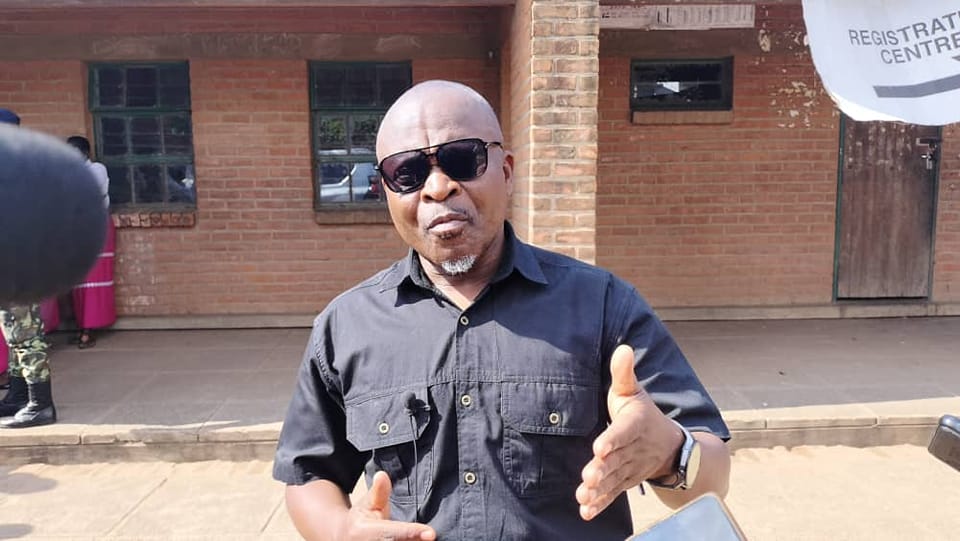INVESTIGATION: The Inside Story Behind the K15 Billion Smear — How Usi Was Framed While State House Played a Different Game
The Democratic Progressive Party (DPP) has intensified its political assault on former Vice President Dr. Michael Usi, accusing him of blowing over K15 billion during his tenure and demanding that he be questioned for alleged abuse of office.
But a Nyasa Times investigation, drawing from senior government insiders, official process records, and Treasury sources, reveals a completely different story—one that points to a deliberate political framing, a misunderstanding of public finance procedures, and troubling allegations involving how State House itself handled funds during the Chakwera administration.

The DPP narrative is simple: Usi wasted money and must be held accountable. But officials who worked directly in the Office of the Vice President describe the claim as both technically impossible and deeply misleading.
One senior officer explained that it is structurally wrong to accuse Usi of mismanaging any funds because a Vice President does not process money, approve payments, handle procurement, or manage operational budgets.
All funds are processed entirely by technocrats who serve as controlling officers and directors, guided strictly by the Public Finance Management Act. Usi’s role, like that of any political appointee, was simply to receive outcomes and perform public duties—not to run financial systems. The officials insisted that if any abuse occurred, it would have been committed by these technocrats, not by Usi himself.
Sources within the Office of the President and Cabinet (OPC) added a critical layer to the story, explaining why Usi’s office appeared to have a larger budget during his tenure. They confirmed that Dr. Usi was routinely delegated by former president Lazarus Chakwera to represent Malawi at global summits, diplomatic forums, and international meetings. He became the administration’s most frequent foreign representative, attending gatherings that normally would have been led by the President himself. This naturally caused his travel budget to rise—not because Usi was extravagant, but because he was carrying out State House assignments that came directly from the President.
However, while the President’s Office was giving Usi these international duties, it was not releasing the funds required to support the missions. According to insiders, the money for such trips should have come from State House, because the events were originally scheduled under the President’s calendar.
Instead, Treasury was repeatedly forced to fund Usi’s travel through the Vice President’s vote—despite the fact that State House had already received travel allocations in its own budget for the very same engagements. This meant Usi’s office ended up appearing to spend far more than normal, while State House retained funds that had been budgeted for foreign travel that the President himself never undertook.
What insiders find most troubling is the allegation that State House continued receiving full travel funding for the President even on trips that Chakwera delegated to Usi. Multiple senior officers told Nyasa Times that this created a situation where Treasury ended up double-paying for the same international engagements: first through allocations to State House, and second through payments made to the Vice President for actual travel.
Sources claim that the funds meant for the President’s travel remained within State House even when Usi was the one travelling. One official described the situation starkly, saying the money “was being pocketed at State House while Usi travelled with funds that Treasury had to scramble for.”
If these allegations hold, they point to a financial irregularity far bigger than the accusations being levelled against Usi. They raise questions about how State House was accounting for travel funds that were budgeted but never used for their intended purpose. Treasury officials say this is where the real investigation should focus, because none of the money passed through Usi’s hands or decision-making authority. They argue that the rise in his office’s spending was the direct result of structural budget manipulation and State House’s failure to fund the trips it assigned to him.
Political analysts believe the DPP’s current narrative is an attempt to weaponize public perception against Usi, especially as the political landscape shifts toward the 2025 elections. The K15 billion figure, they say, has been turned into a blunt political instrument, unconnected to actual financial processes. Yet every official who spoke to Nyasa Times insisted the same thing: Usi did not control the money, did not process it, and could not have abused it. The technocratic pipeline and State House decisions determined where the money went.
The real issue now is not whether Usi abused K15 billion—there is no evidence that he did—but rather what happened to the funds allocated for the President’s travel during the years Usi was consistently delegated to represent the country. Those funds were released. The President did not travel. Usi did. Treasury paid again. And State House, according to multiple insiders, did not transfer the money to the Vice President’s office.
These findings suggest that the K15 billion scandal being pinned on Usi may actually be a diversion from the far more uncomfortable question of how State House managed, retained, or spent funds allocated for trips the President never took. The political attacks on Usi may be loud, but behind them lies a deeper story that Malawians have not been told—and one that does not point to the former Vice President, but to the system that surrounded him.
Follow and Subscribe Nyasa TV :
